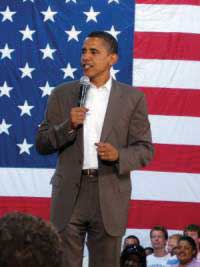


Figure 13.6 As the 44th elected president of the United States, Barack Obama has legitimate power. As commander-in-chief of the U.S. Armed Forces, he also has coercive power. His ability to appoint individuals to cabinet positions affords him reward power. Individuals differ on the degree to which they feel he has expert and referent power, as he received 52% of the popular vote in the 2008 election. Shortly after the election, he began to be briefed on national security issues, providing him with substantial information power as well.
Referent power stems from the personal characteristics of the person such as the degree to which we like, respect, and want to be like them. Referent power is often called charisma - the ability to attract others, win their admiration, and hold them spellbound. Steve Jobs's influence as described in the opening case is an example of this charisma.